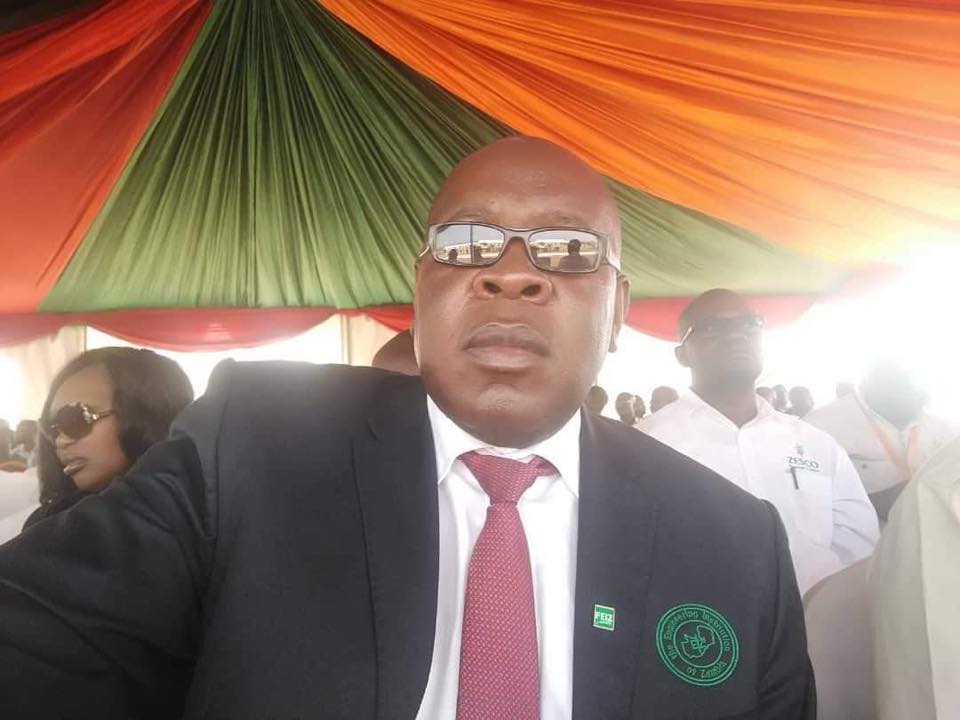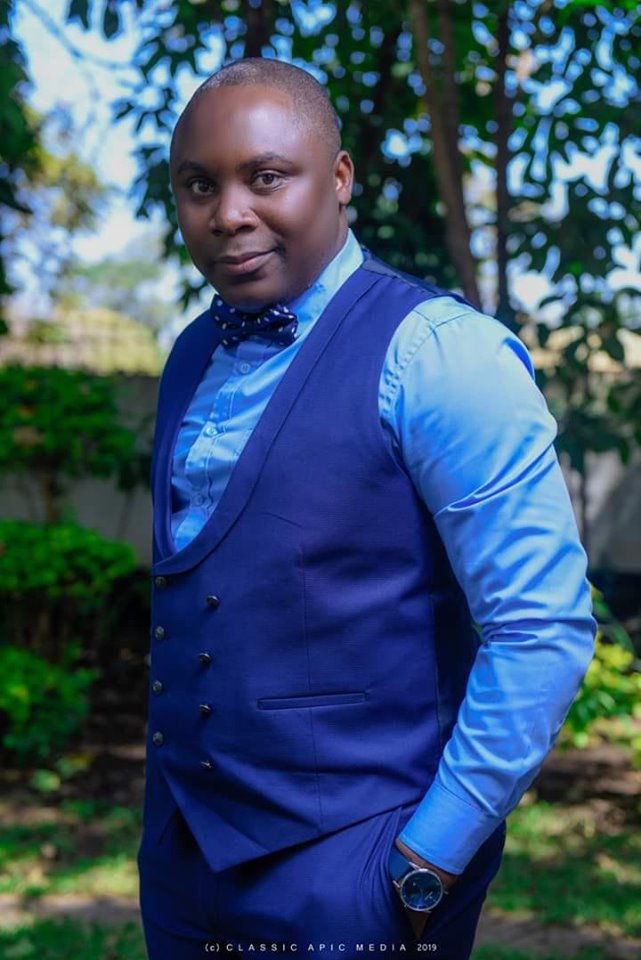THE Lusaka Star has kept track of the ensuing social media commentaries over the New Society Business Park in Lusaka, whose structural integrity, according to a joint inspection by key stakeholders, has been compromised.
Cracks have been observed on the pillars on the first floor of the building and this has seen various professionals descend into an analysis battle.
Published below are the latest verbal blows exchanged between respected Zambian economist Herryman Moono and the Engineering Institution of Zambia President, Sydney Matamwandi.
Eng Matamwandi:

“Distinguished Economist, Hjoe Moono,
Not every day is a circus day. You can be a clown once but not all the time. The comedy starts to become boring and the motive begins to be clear.
It’s quite evident that you have some inferiority complex and a sense of inadequacy that you are not an engineer. The opportunity to become one is not closed. Please enter any of the universities and study engineering. We will welcome you to become an Engineer and a full member of the Engineering Institution of Zambia.
During my high school days every pupil with a worthy IQ wanted to qualify to Unza and do Engineering. Very few were called and among those few, even fewer have become Engineers. It’s a small and elite group, admired and respected by many citizens. We appreciate that.
However, there are also many who dreamt to be Engineers but didn’t make it. Some are still jealous, others are envious, but there are also those that are bitter. We are sorry for them that they did not make it to the career of choice. We are however, not responsible for their failures. Their low IQ is the reason.
As way of finding remedy for the painful and understandable sense of unfulfilled ambition or inadequacy, they resort to insulting Engineers as a way of feeling compensated for their low IQ. In psychology and psychiatry this is often called “small penis syndrome”, an analogy to men with inadequate sizes that like to spend exaggeratedely long hours in the gym trying to compensate for the injured ego as a result of a failure to perform due to the inadequacies in the size of matrimonial tools
We understand the pain, but do forgive the idiots, their pain is too deep. Please continue to admire and insult Engineers if that is the only way your ego can be boosted. Engineers have no appetite nor time to be part of your drama and comedy. We don’t need your approval or validation to fulfil our professional mission: to bring water to our communities; to provide telecommunications; to build roads, hospitals and schools; to operate our mines; to build and operate airports, railways and bridges; to generate and supply power to homes and industries; to operate factories that manufacture our chemicals and process food …. Our plate is full and we are expending our energies where it matters most.
We have no time to waste on clownery from junk professionals who have nothing to do other than spend the whole day spreading idiocy and hatred against fellow Zambians.
Engineers are also Zambians. Have a life of your own or go hang yourself if you can’t stand to coexist with fellow Zambians.”
And published below is economist Herryman Moono’s reaction:

Dear Distinguished Engineer Sydney Matawandi, EIZ President:
I have read with great amusement, your statement in response to one of my posts of yesterday on the need to enhance the practice of engineering and innovation in Zambia. Your response was quite ‘interesting’ and reminded me of my teenage days at UNZA when selecting career paths, with our colleagues from the School of Natural Sciences (NS) calling themselves ‘Nshimbi’ and praising their higher IQs compared to us who chose the other schools, ‘Vikwakwa’ you called them?
I see and note, with sympathy, that you have not yet graduated from this mindset to appreciate the Role of Engineering in Society, especially for a poor developing country like ours.
I have elected not to respond to the specific issues you raise in your article – because you raise none worth your office – I assume you too wrote for fun as I did?
However, I now seek your indulgence that you may allow me to succinctly express my thoughts on what I think ought to be the role of engineers in society, and nest this in the Zambian situation so that you can fully appreciate why there is dissatisfaction with the work of an average engineer in Zambia.
I hope you will be kind enough to share this on your page as you did the earlier one, as it may be beneficial to your fellows too.
I will speak not an as engineer – I am not one, never wanted to be one and do not wish to be one – but as an economist who appreciates and respects the value that you do (or rather, ought to do).
What should be the role of engineers in society?
Firstly, engineering is NOT about prestige, rather, it is about the ability to understand the needs of society and adequately responding to these for the betterment of humankind. It is not about who has the highest IQ as you profess, rather, it is about who, using whatever level of IQ, can decipher, simulate, anticipate and solve society’s problems. This requires, among others, innovation and an appreciation of the social, economic and political environment in which the engineer works.
Secondly, engineers, after understanding society’s problems are expected to be Problem Solvers. The heavy training in quantitative analysis that engineers go through is aimed at enhancing their problem-solving capabilities through a meticulous application of logic and mathematical elegance. Engineers ought to solve the challenges our society faces by their ability to reduce complex phenomena to a quantifiable solvable equation – moving from the general unknown to a reduced form equation, arriving at a known single solution that can be implemented through policy.
Thirdly, in understanding and solving society’s problems, creativity, linked to innovation, is expected of an engineer. Creativity entails that the engineer is constantly researching for the best possible solutions to society’s problems while navigating society’s vested and diverse interests. For example, the cholera challenges we face as a country could be solved, to a higher degree, through engineering innovation and design of our cities’ infrastructure. That Cholera remains annual ritual speaks to lack of innovation. Engineers ought to be creative both as initiators and implementers of new ideas – Innovation. Engineers, by their training and practice ought to make the lives of other people easy – enhancing efficiency and productivity. For example, it is expected that competent engineers do not just react to faults in structural designs of buildings such as we are currently experiencing with Society House but prevent such from happening through stress testing and simulations of different feasible forces. Clearly, we have been failed here, and that is why we talk. The consequences of such incompetence are grave: Lives could be lost, and business dies, further crippling the economy. One of a higher IQ is expected to know such, unless of course you see your role as mere fire fighters who come after the fire?
Fourthly, engineers ought to be doers – they don’t just sit back and watch – they make things happen. Making things happen means just that – for without engineering, there couldn’t be industrial growth and overall economic development. The training of engineers makes them creatively critical, capably curious to anticipate and handle challenges of the ever-changing environment in which they live in and practice their trade. By being doers, Engineers ought not to be reactive, rather, through their training of simulations, they can be proactive to anticipate and solve challenges through preventive measures of a calamity or mitigation measures to reduce the negative impacts of what can not be avoided.
Fifthly, and finally – for now – I think engineers ought to be the bedrock of any national development agenda. The many National Development Plans that our country has had, in detail, all point to the need for the enhanced role of the engineers. In my training of growth economics, we understand that ultimately, the most significant factor in determining differences in economic growth is science and technology, or the level of engineering development. For it is engineering that makes possible the production of good and the efficient delivery of services. It makes possible good healthcare delivery. It makes possible the enjoyment of leisure through the enhancement of safety of citizens.
As I conclude, I challenge my colleagues in the engineering sector to nest their practice in the wider sphere of Zambia and ask the question:
Have we done enough to be proud of?
If only 20% of contracts should be allocated to Zambian firms as articulated in the national budget, what does that say about our engineering capabilities?
Remember, the engineering portfolio knows no bounds – you as engineers, together with us economists (who have failed our economy in varying degrees) are all working towards the same common goal: Building a vibrant, resilient and sustainably developed Zambia.
The value of your training as engineers, like that of any discipline for that matter, is in its use to society – to enhancing the lives of people – and not its mere possession.
What does it benefit a country to have a thousand locak Engineers yet have to rely on Chinese craftsmanship to build roads, bridges, airports, hospitals? It is not enough to pride yourselves as Engineers is over 80% of Engineering works are done by foreigners.
I will end my submission on a lighter note:
I would have been available for a parade to check whose ntwanikane is bigger, but when I was growing up I was raised not to look at elders’ ntwanikane, ati I can go blind! So, no, I still want to have my sight so that I can see the cracks in any building I am in. But let me give you a hint: I am from Dundumwezi – with a bit of Mununga wisdom – figure it out!
Good day sir.

